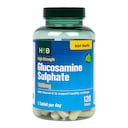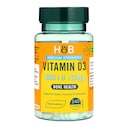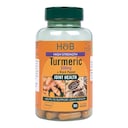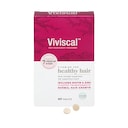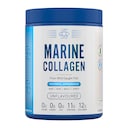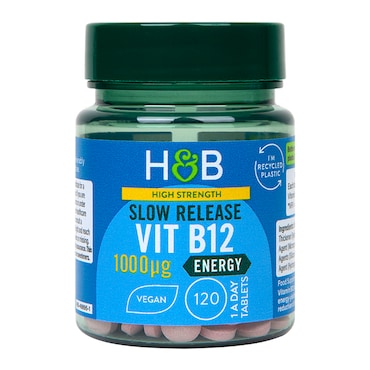15% off £20
Code:BASKET
OffersBuy one get one 1/2 priceSave up to 1/2 Price3 for 2 Mix & MatchBuy 1 Get 1 FreeOnline OnlyBuy 1 Get 1 Free EventOutlet2 for £18 Mix & Match2 for £5 Mix & MatchIntroductory Offer2 for £60 Mix & Match2 for £2 Mix & MatchVitamins & SupplementsVitamins & Supplements Shop AllHair, Skin & NailsCollagen & SilicaMuscle Support & Joint PainDigestive HealthMagnesiumFunctional MushroomsVitaminsShop all VitaminsMultivitaminsVitamin AVitamin BVitamin CVitamin DVitamin EVitamin KVitamin DrinksMineralsShop all MineralsMagnesiumIronZincCalciumSeleniumChromiumSupplementsShop all SupplementsFibre SupplementsAcidophilus & Friendly BacteriaPeppermint OilGrapeseed ExtractLecithinCollagen & SilicaOmega & Fish OilsPlant Sourced SupplementsSuperfood SupplementsArnicaApple CiderRaspberry KetonesAloe VeraChondroitin & MSMCo Enzyme Q10Evening Primrose OilGarlicGinkgo BilobaGlucosamineGlucomannanSeaweed, Kelps and Aquaceuticals5 HTPDigestive EnzymesSaw palmettoCharcoalConditionShop all ConditionCholesterolAllergy & Hay Fever CareAnxiety SupportBone & Muscle HealthMuscle Support & Joint PainBrain & Memory SupportWomen's HealthMen's HealthChildren's HealthCold & Immune SupportFatigueDigestive HealthHair, Skin & NailsHeart & CirculationLiver CareMood SupportSexual HealthSleep & RelaxationStress ReliefVisionWomen's HealthShop all Women's HealthPerimenopauseMenopauseMenstrual SupportUrinary Tract HealthPregnancy & ConceptionMen's HealthShop all Men's HealthProstate HealthChildren's HealthCBD Vitamins & SupplementsShop all CBD Vitamins & SupplementsCBD OilCBD CapsulesCBD SprayCBD GummiesHerbal & Licensed RemediesShop all Herbal & Licensed RemediesRescue RemedyAshwagandhaMilk ThistleGinseng & GuaranaHomeopathic & Flower RemediesShop all Homeopathic & Flower RemediesRescue RemedyTissue SaltsFlower RemediesHomeopathic RemediesAt-Home TestsVegan Vitamins & SupplementsHolland & BarrettVitabioticsSolgarNew NordicWeledaBioglanGrass & Co.Natures AidNature's WayBetterYouBuy one get one 1/2 price3 for 2 Mix & MatchOnline OnlySave up to 1/2 PriceBuy 1 Get 1 FreeBuy 1 Get 1 Free EventOutletIntroductory OfferDairy FreeGluten FreeSesame Seed FreeCelery FreeCereal FreeCrustaceans FreeEgg FreeFish FreeKiwi FreeLupin FreeNew inFood & DrinkFood & Drink Shop AllEasterComic ReliefVegan FoodShop all Vegan FoodMeat-Free AlternativesDairy Free DrinksEgg SubstitutesVegan ProteinVegan Protein BarsDried Fruit, Nuts & SeedsShop all Dried Fruit, Nuts & SeedsDried FruitNutsSeedsMixesChocolate CoatedTeas, Coffee & Hot BeveragesShop all Teas, Coffee & Hot BeveragesCoffee & Coffee SubstitutesMushroom DrinksHot ChocolateTeasSuperfood TeasMatcha & Green TeaHerbal TeaPeppermint TeaSleep & RelaxationSlimming TeaWomen's Health TeasDrinks & JuicesShop all Drinks & JuicesMultipack DrinksJuices & Health ShotsNatural Energy DrinksCoconut WaterKombuchaCBD DrinksSoft DrinksWaterAlcohol Free DrinksProtein ShakesSuperfoodsShop all SuperfoodsSuperfood BlendsSupergreensMoringa PowderSpirulinaMaca PowderFlaxseedBaobabChia SeedsGoji BerriesGut HealthHealthier SnackingShop all Healthier SnackingSweet SnacksSavoury SnacksLow Calorie SnacksChocolateCrisps & ChipsCrackers & CrispbreadsBiscuits & CookiesSnack BarsFlapjacksLiquoricePopcornSweets & MintsChocolate Coated SnacksFood CupboardShop all Food CupboardApple Cider VinegarCondiments & SaucesMeat-Free AlternativesSoup & Ready MealsRice, Pasta, Pulses & GrainsGravy, Broths & StockHoney, Jams & SpreadsShop all Honey, Jams & SpreadsManuka HoneyHoneyNut ButtersJams & ChutneysSyrupsSpreadsPateBreakfast CerealsShop all Breakfast CerealsCereals, Bran & FlakesGranolaMuesliOats & PorridgeBreakfast BarsCookingShop all CookingCooking IngredientsApple Cider VinegarCondiments & SaucesMeat-Free AlternativesSoup & Ready MealsRice, Pasta, Pulses & GrainsTinned FoodsHerbs, Spices & SeasoningGravy, Broths & StockHome BakingShop all Home BakingBaking IngredientsBaking MixesBreadFlourSweeteners & Sugar AlternativesEgg SubstitutesDairy Free DrinksShop all Dairy Free DrinksOat, Rice & Hemp DrinksSoya DrinksNut DrinksCoconut DrinksDesserts & CreamsNutritionally Complete FoodCoconutHolland & BarrettNaturyaGrenadePukkaTwiningsHeath & HeatherNakdPerfectTedManuka DoctorMeridianBuy one get one 1/2 priceSave up to 1/2 PriceBuy 1 Get 1 FreeBuy 1 Get 1 Free Event3 for 2 Mix & MatchOnline Only2 for £5 Mix & Match2 for £2 Mix & MatchGluten FreeDairy FreeWheat FreeSugar FreeEgg FreeMilk FreeSoya FreeNut FreeSesame Seed FreeCelery FreeNew inSports NutritionBundlesSports Nutrition Shop AllProteinShop all ProteinWhey ProteinClear ProteinMass GainersVegan ProteinDiet ProteinCaseinSports SupplementsShop all Sports SupplementsTestosteroneElectrolytesEnergy GelsSports CollagenCreatineShop all CreatineCreatine PowderCreatine CapsulesBars, Drinks & SnacksShop all Bars, Drinks & SnacksEnergy BarsProtein BarsProtein ShakesProtein SnacksNutritionally Complete FoodMeal Replacement ShakesPre Workout & EnergyShop all Pre Workout & EnergyPre WorkoutCaffeine Free Pre WorkoutAmino Energy PowdersIntra WorkoutPost WorkoutKetoAmino AcidsShop all Amino AcidsAmino Energy PowdersBCAAL-LysineGlutamineCarnitineArginineVegan Sports NutritionShop all Vegan Sports NutritionVegan ProteinVegan Protein BarsVegan Pre Workout & EnergyVegan Amino AcidsVegan CreatineSports AccessoriesShop all Sports AccessoriesBottles & ShakersFitness EquipmentOptimum NutritionPrecision EngineeredUSNApplied NutritionMyproteinGrenadePhDHuelTriActiveSiSSave up to 1/2 PriceBuy one get one 1/2 priceBuy 1 Get 1 FreeOnline Only2 for £60 Mix & MatchBuy 1 Get 1 Free Event3 for 2 Mix & Match2 for £64 Mix & MatchGluten FreeDairy FreeSugar FreePalm Oil FreeSoya FreeCelery FreeCereal FreeCrustaceans FreeEgg FreeFish FreeNew inBeautyNatural Beauty Shop AllSkincareShop all SkincarePremium SkincareFace CareBody CareSun CareTanning & BronzingEye CareLip CareFoot CareHand & Nail CareSkin AilmentsSkin OilsCBD BeautyFace CareShop all Face CareCleanser & TonerFace MoisturiserFace Oil & SerumFace WashFace Exfoliators & ScrubsFace MasksHair CareShop all Hair CareShampoo & ConditionerHair ColouringHair MasksHair Oil & SerumHair Spray, Gel & MousseHair AccessoriesWashing & BathingShop all Washing & BathingShampoo & ConditionerBathing AccessoriesFeminine CareShower Gel & Body WashDeodorantDentalHand WashSoapBath Soak & OilBody ScrubBath Bombs & SaltsIncontinence SupportAromatherapy & HomeShop all Aromatherapy & HomePure Essential OilsBlended Essential OilsBase & Carrier OilsHolisticMother & BabyShop all Mother & BabyBaby Skincare & ToiletriesElectrical WellnessDr OrganicFaith in NatureWeledaNaturtintTisserandMiaromaSukinQ+ATrilogyChilds FarmBuy one get one 1/2 priceSave up to 1/2 PriceBuy 1 Get 1 Free2 for £18 Mix & MatchOnline OnlyOutlet3 for 2 Mix & MatchIntroductory OfferAlcohol FreeParfum FreeFluoride freePalm Oil FreeGluten FreeCelery FreeCereal FreeCrustaceans FreeDairy FreeEgg FreeNew inWeight ManagementWeight Management Shop AllFat Burners, Binders & Appetite SuppressantsShop all Fat Burners, Binders & Appetite SuppressantsFat BurnersFat BindersAppetite SuppressantsSlimming TabletsWeight Management Shakes Shop all Weight Management Shakes Meal Replacement ShakesDiet ProteinDiet Food & DrinkShop all Diet Food & DrinkSlimming TeasHealthier CookingLow Calorie SnacksFruit, Nuts & SeedsJuices & Health ShotsApple Cider VinegarExercise SupportShop all Exercise SupportFitness EquipmentMeal Replacement ShakesDiet ProteinProtein BarsHolland & BarrettUSNTrekEat WaterIdeal HealthNudie SnacksBraggGrenadeNatures AidNew NordicBuy one get one 1/2 priceSave up to 1/2 Price3 for 2 Mix & MatchBuy 1 Get 1 FreeBuy 1 Get 1 Free EventOnline OnlyGluten FreeSugar FreeWheat FreeDairy FreeCelery FreeCrustaceans FreeEgg FreeFish FreeKiwi FreeLupin FreeNew inHealth & WellnessShop all Health & WellnessEnergyJoints Bones & MusclesGut HealthHair Skin & NailsStress AnxietySleep & RelaxationHolland & BarrettVitabioticsNaturtintSolgarWeledaOptimum NutritionDr OrganicApplied NutritionBetterYouWildBuy one get one 1/2 price3 for 2 Mix & MatchSave up to 1/2 PriceOnline OnlyBuy 1 Get 1 FreeBuy 1 Get 1 Free Event2 for £18 Mix & MatchOutletDairy FreeGluten FreeSugar FreeAlcohol FreeWheat FreeSoya FreeSesame Seed FreeCelery FreeCereal FreeCrustaceans FreeNew inNew InBest SellersTrendingMedicines and HealthcareVeganShop for your WellnessGut HealthImmunityEnergySkincareWomen's HealthMenstrual HealthMenopauseJoints, Bones & MusclesHair, Skin & NailsSleep & RelaxationFood & DietChildren's HealthStress ReliefHealthy HeartLow Mood & DepressionConcentration & AlertnessEye HealthSexual HealthLearn about WellnessJoints, Bones & MusclesEnergyWomen's HealthPeriods & Cycle HealthMenopauseImmunityGut HealthFood & DietSports & FitnessSleep & RelaxationHair Skin & NailsArticlesAll articlesHealthFood & nutritionGut healthImmunityJoints, bones & musclesWomen's healthWellnessHair & skinMental wellbeingSeasonalSleep & relaxationSports nutritionRecipesAll recipesGluten freeLow sugarVeganDairy freePodcast
